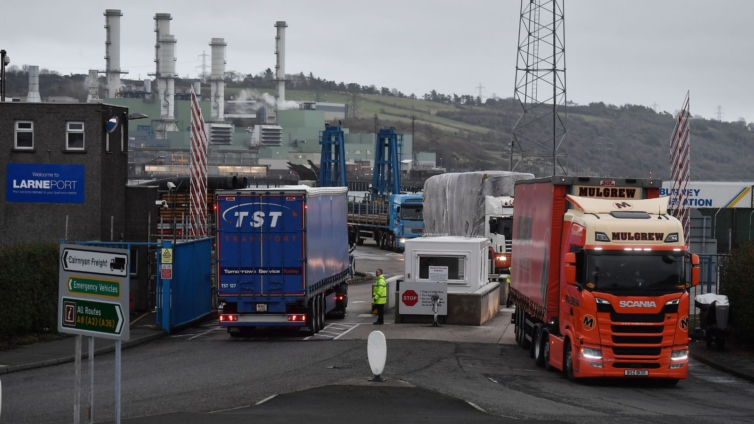The British government estimates it will spend at least 4.7 billion pounds ($6 billion) on implementing post-Brexit border arrangements, after repeated delays in setting new rules, parliament's spending watchdog said on Monday.
Britain voted to leave the European Union in 2016 but, such was the scale of the task to untangle supply chains and erect customs borders, that it is only this year setting new rules.
The first phase of Britain's so-called new Border Target Operating Model, requiring additional certification, came into force on Jan. 31.
A second phase started on April 30, introducing physical checks at ports. A third phase, requiring safety and security declarations is slated for Oct. 31.
The National Audit Office (NAO) said the 4.7 billion pounds figure is the amount the government forecasts it will spend on the 13 most significant programmes to manage the passage of goods across the border post-Brexit and improve performance over the lifetime of the programmes.
The government delayed the implementation of full controls five times since the end of the EU exit transition period on Dec. 31 2020.
This caused uncertainty for businesses, extra costs for government and ports and increased the biosecurity risk to the UK, the NAO said.
"The repeated delays in introducing import controls, and difficulties forecasting requirements, have resulted in government expenditure on infrastructure and staff that were ultimately not needed," it said.
"Late announcements about policy and uncertainty about the implementation of controls have also reduced the ability of businesses and ports to prepare for changes."
The NAO noted that while post-EU exit border processes have operated "relatively smoothly", businesses trading goods between the UK and the EU have faced additional costs and administrative burdens.
The watchdog was also critical of the government's 2025 UK Border Strategy, which was published in 2020, saying it "lacks a clear timetable and an integrated cross-government delivery plan, with individual departments leading different aspects of implementation."
The government also needed "a more realistic approach" to digital transformation, the NAO said.
($1 = 0.7895 pounds)
Latest Stories
-
‘We will fish him out’ – DCOP Teye-Cudjoe vows to arrest soldier behind Nyinahin shooting
2 minutes -
Traditional leaders laud AngloGold Ashanti’s youth dev’t initiatives in Obuasi
11 minutes -
Cyra Pamela Koranteng resigns as Judicial Secretary, deputy elevated
20 minutes -
Benjamin Arthur hands over as Chief Executive of Fair Wages
29 minutes -
NPP calls for submission of constitutional amendment proposals by May 9
39 minutes -
ASFC 2025: Ghana girls secure final berth after dramatic 3-2 win over South Africa
40 minutes -
E Vibes to host Evergreen Movement Band on Musical Band series
56 minutes -
Rev. Charles Owusu decries partisan divide in Chief Justice impeachment discourse
1 hour -
Education Minister charges CIMG to champion national branding and public sector marketing
1 hour -
Photos: Mahama swears in newly appointed Military Service Commanders
1 hour -
Prosecute military officers responsible for Nyinahini killing – Chief
1 hour -
TTH doctors resume emergency services after Dagbon Overlord’s intervention
2 hours -
President Mahama declares 1st July as National Day of Prayers and Thanksgiving
2 hours -
Newborns to receive Hepatitis B vaccinations from October
3 hours -
ASFC 2025: Ghana boys to fight for bronze after defeat to Tanzania
3 hours

